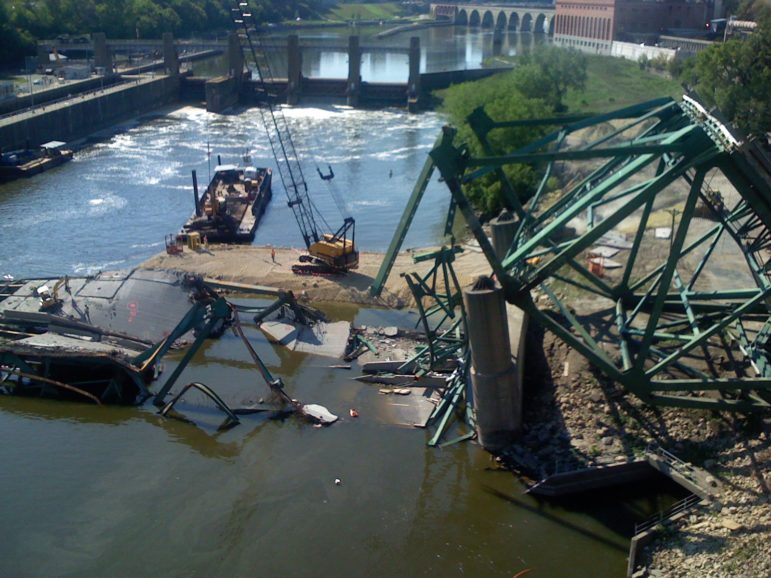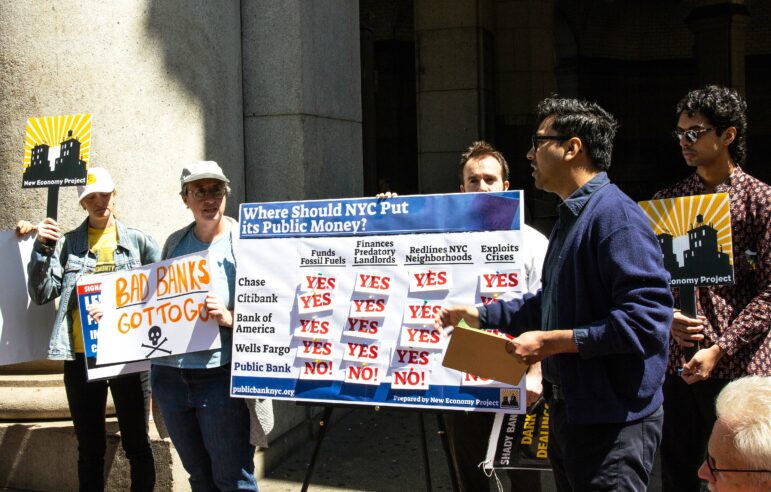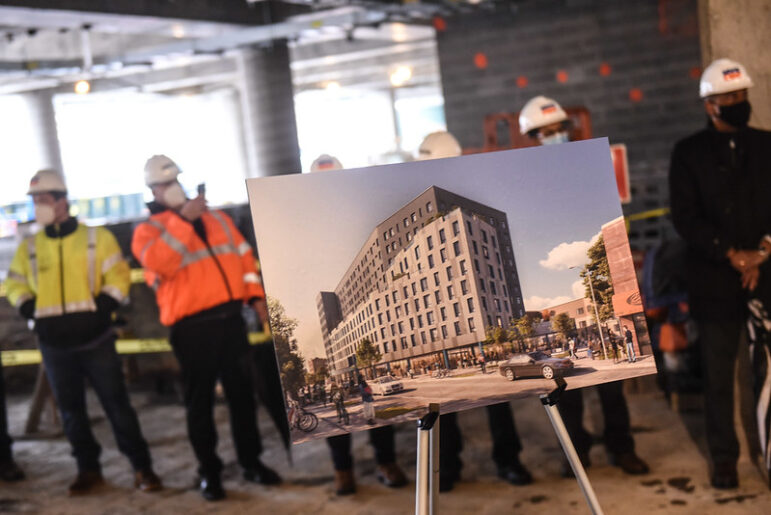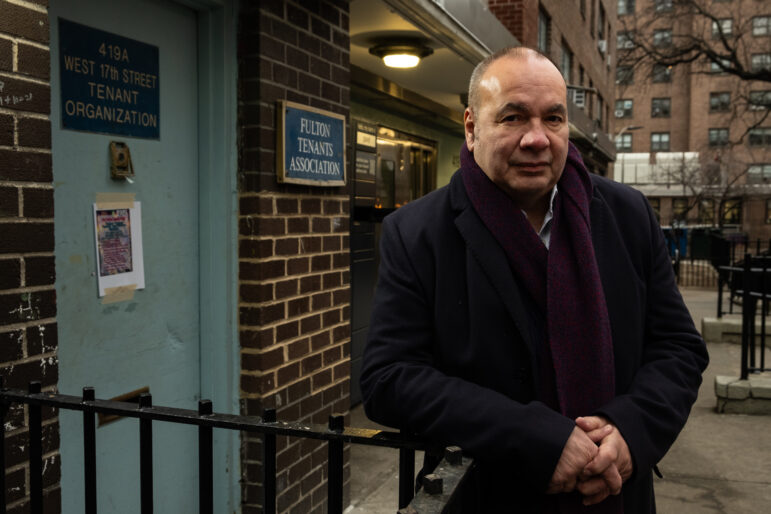
Tony Webster
The 2007 I-35 bridge collapse in Minneapolis.
If you’ve found the last few presidential campaigns a little too heavy on policy detail, 2016 is the year for you. A rich vein of vitriol and a bumper-crop of baggage are all but crowding out talk about stuff like, oh I don’t know, like what the next president will actually do. Who would have guessed that in 2016, the word “genitals” would be uttered as often as the word “climate” in a presidential debate? And is it a good or a bad thing that each was said only once?
It’s not hard to decide which candidate benefits from the limited discussion of policy. Nor is it hard to guess why the Trump campaign sent no representative to yesterday’s meeting on West 23rd Street with representatives of the U.S. Conference of Mayors. Cities are usually—though not always—solidly Democratic in their voting, and urban policy gets into nitty-gritty detail rather quickly.
Donald Trump has alluded to problems in the inner cities, but has said not much about specific ways to help. And amid “recent political turbulence” Conference of Mayors CEO Tom Cochran said, “the surrogate lines have gone silent” at Trump HQ. That’s a shame because cities would probably benefit from being an electoral prize both parties fought over, rather than a lump of votes that one side writes off and the other takes from granted.
That’s especially true when it comes to roads, bridges, airports, trains, and all the other tools that help city’s run the economy that the rest of America commutes to. “The next president of the United States has got to recognize that cities need help with infrastructure,” said Oklahoma City Mayor Mick Corbett, the president of the conference, “This is a ticking time bomb that isn’t going away. This is something we’re going to leave the next generation to deal with and they deserve better than that.” Seated next to Corbett, Mayor de Blasio pointed out that in America’s largest cities, “There are more structurally deficient bridges than there are McDonalds in the entire country,” including 160 bridges in New York City alone that are more than 100 years old.
Former Secretary of State Hillary Clinton did send a surrogate: former Philly mayor and Pennsylvania Gov. Ed Rendell.
Rendell said all the right things: Noting that U.S. infrastructure investment is half of what it was in 1981; pumping Clinton’s plan to spend $275 billion over five years on roads, bridges, aviation, freight and broadband; endorsing infrastructure investment as helpful not just the people who use it but the workers who build it and the firms that make the machines that create, repair or operate it.
He also ventured into territory where some tensions exist. For instance: Rendell says Clinton wants to find a way to carve off a portion of the formula funding that decides how much each state gets from federal infrastructure programs and have it go directly to the mayors. Sensible? Yes. Popular with governors? Probably not. Rendell also criticized the way metropolitan planning organizations, or MPOs, which the feds require for urban transportation planning, are composed, suggesting that when he was mayor of Philadelphia the local MPO was dominated by suburbanites. A power shift from the region back toward central cities makes sense; it will also ruffle some feathers.
Rendell went on to note, as people often do, how expensive and time consuming it is to build anything in the U.S.: the fact that three out of four federal highway projects have cost overruns or that it takes four times as log to start a highway project in the U.S. as it does in Japan or Germany. “Can somebody tell me why so many EISs take two years to do?” he asked, to groans of agreement from the mayors and audience. Fair points all. But procurement rules, project labor agreements and environmental regulations—the obstacles that cause a lot of those costs and delays—all have not just a constituency, but also a rationale. So they won’t be easy to rewrite.
And the former governor added that he supported permitted localities to toll federal roads, but stressed that Clinton has not taken a position on that yet. You can guess why.
Whether or not she backs more tolls, Clinton will face a steep climb getting her infrastructure plan passed quickly. “The chance of Secretary Clinton getting $275 billion through Congress in her first 100 days is not great because her pay-for is tax reform,” Rendell said. In other words, she hopes to pay for the infrastructure plan (and some debt reduction) by scaling back tax deductions and credits that cost the federal treasury some $1.4 trillion a year. That’s not an easy tradeoff. “It’s going to be a long process.”
Clinton is committed, and Rendell says she can deliver, on renewing federal support for an infrastructure bank and for Build American Back bonds during her first few months in the White House, if she makes it there.
Rendell says he joins former FAA director Jane Garvey FAA and former Maryland transportation official John Porcari as the infrastructure policy team on the campaign, and indicated the same trio will oversee that portfolio during the transition if Clinton is elected.








